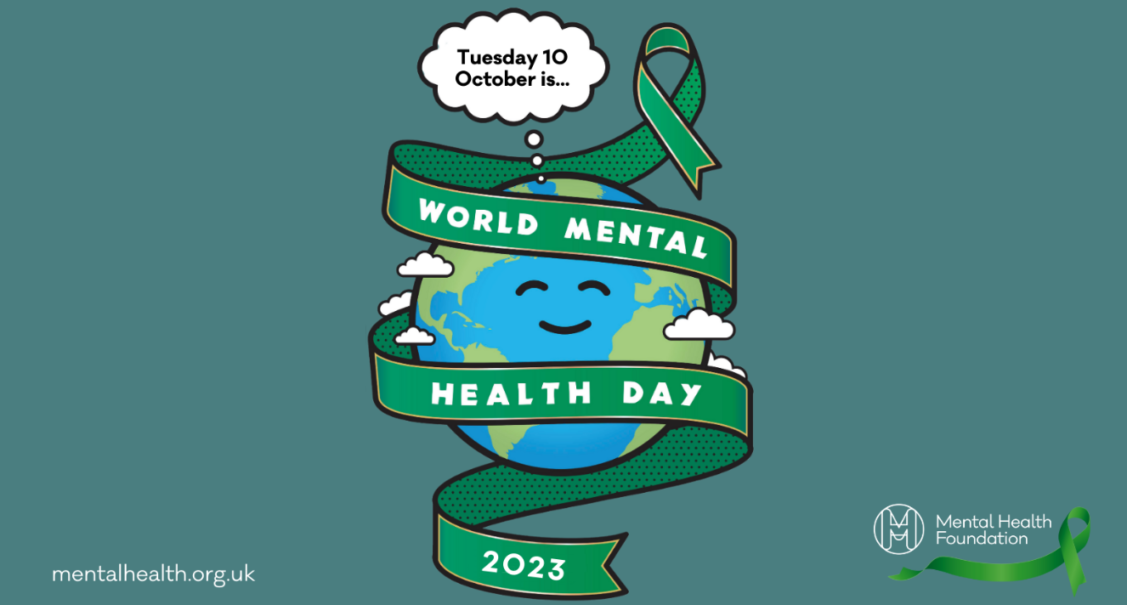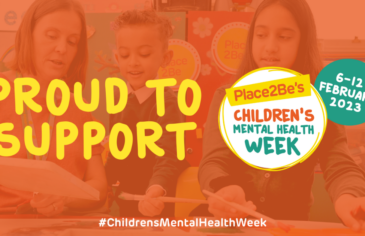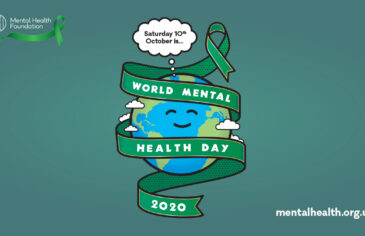It’s World Mental Health Day 2023!
Every year, on the 10th of October, we celebrate World Mental Health Day. The theme for 2023, set by the World Foundation of Mental Health, is ‘Mental health is a universal human right’.
According to The Mental Health Foundation, World Mental Health Day is about raising awareness and driving positive change for everyone’s mental health.
World Mental Health Day is a great opportunity to start conversations about mental health – how to look after it, why it’s important and what to do if you’re struggling.
At Red Balloon, our young people and staff’s mental wellbeing is a top priority. We know that mental ill-health can completely obstruct our ability to show up, learn and enjoy life. It can negatively affect our relationships, self-esteem and sometimes even our physical health!
This is why it’s so important to look after our mental health and know what to do if we’re struggling. Preventative measures can keep our mental health in a good place. These might include building a strong and supportive social network, making time for hobbies and passion projects, moving your body and having conversations about mental health more generally.
Helpful Tips for Talking About Mental Health
The Mental Health Foundation offers some helpful tips on how to talk about mental health.
- Talk about it. Talking about your mental health is important. Checking in with yourself and others about mental health opens the door for dialogue that can be beneficial for everyone.
- Talk to someone you trust. Choose someone you are comfortable with and be prepared that the conversation might not be easy. You can also talk to a helpline if you would feel better about talking to someone you don’t know in person.
- Choose a place to talk. When talking about mental health, try to pick a place where you feel relaxed and comfortable. You can go somewhere private, or even talk about it while doing an activity like walking or riding a bike.
- Prepare. Hopefully, you have a good experience when talking about your mental health. But sometimes people don’t react in the way we hope. This may be for different reasons, like they may be worried or not fully understand at first. If that’s the case, try to give them time to process what you’ve told them. It might help to give them information to read to help them understand.
- Practise self-care. Conversations like this can be physically and mentally exhausting. Be kind to yourself.
Ask for Help
Sometimes, our mental health will take a dive. This is not at all a personal failing and you are not alone. In fact, one in eight people globally are living with a mental health condition (World Health Organization). At Red Balloon, we don’t believe there is any shame in struggling with your mental health. The important thing is to know how to ask for help.
Asking for help can be scary and sometimes our mental health conditions can make it even more difficult to reach out. This is why making conversations about mental health part of our everyday life is so important! It makes it easier to reach out to those you trust and feel comfortable with.
Telling your adults at home or at school can be a great first step as they can help you find professionals that know how to help you. If you’re not in school or don’t feel comfortable talking to these people you might have a friend or another family member. If you’d prefer to tell someone you don’t know, your GP is also a great resource. They can point you towards resources, make referrals or discuss other options like medication. There are also charities like Mind or hotlines like Samaritans if you need to speak to someone right away.
It’s a great idea to make a list of resources around you (resources and services often vary depending on your location, so it’s good to know the places you can go in your area) when your mental health is in a good place, as it can remove one extra barrier to accessing help when you’re not feeling well.
Mental Health is a Human Right
Mental health is impossible to separate from the rest of our lives. It is deeply entwined with our work, our learning, our hobbies, our relationships and our communities, much like physical health. This year’s theme ‘Mental health is a universal human right’ recognizes the devastating effects mental ill-health can have and the importance of having safe, accessible and good quality mental health care regardless of who you are or where you’re from.



